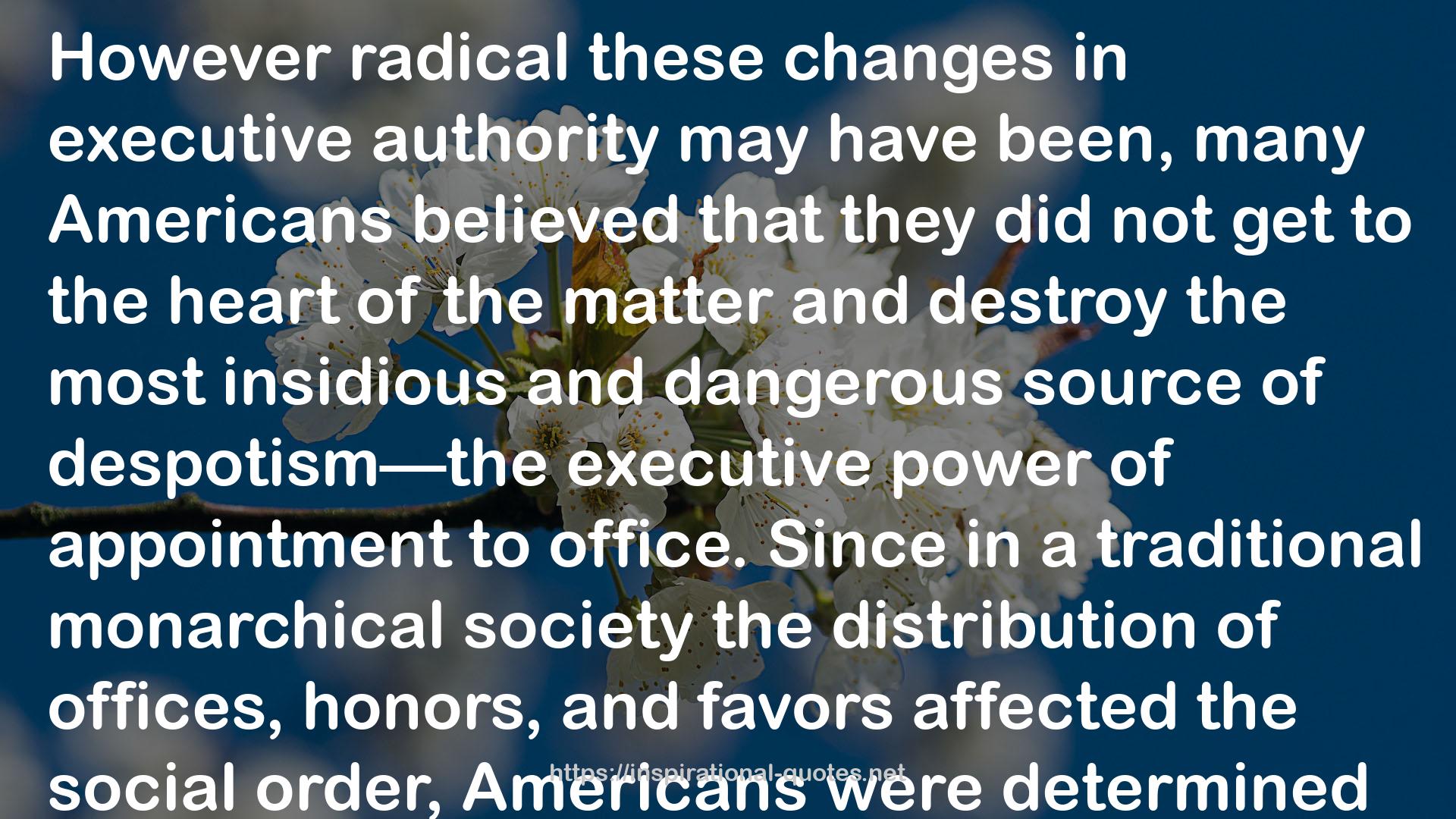" However radical these changes in executive authority may have been, many Americans believed that they did not get to the heart of the matter and destroy the most insidious and dangerous source of despotism—the executive power of appointment to office. Since in a traditional monarchical society the distribution of offices, honors, and favors affected the social order, Americans were determined that their governors would never again have the capacity to dominate public life. The constitution-makers took exclusive control over appointments to executive and judicial offices from the traditional hands of the governors and gave it in large part to the legislatures. This change was justified by the principle of separation of powers, a doctrine Montesquieu had made famous in the mid eighteenth century. The idea behind maintaining the executive, legislative, and judicial parts of the government separate and distinct was not to protect each power from the others, but to keep the judiciary and especially the legislature free from executive manipulation—the very kind of manipulation that, Americans believed, had corrupted the English Parliament. "
― Gordon S. Wood , The American Revolution: A History
